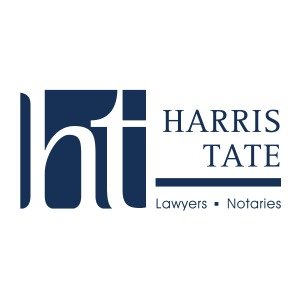Best General Litigation Lawyers in Tauranga
Share your needs with us, get contacted by law firms.
Free. Takes 2 min.
List of the best lawyers in Tauranga, New Zealand
About Litigation Law in Tauranga, New Zealand
Litigation law in Tauranga, New Zealand involves actions brought in court to enforce, defend, or interpret legal rights and responsibilities. Disputes can arise in many different areas, including commercial transactions, contract breaches, matters of professional negligence, or conflicts related to family estates. New Zealand follows a dual system of court structure with both general courts and established specialist courts, and Tauranga is subject to these legal systems. Notable courts in these areas are the Tauranga District Court and Tauranga High Court.
Why You May Need a Lawyer
If you find yourself in a dispute that cannot be resolved through negotiation or mediation, it may be necessary to go through a formal legal process. This often involves complex legal procedures, documentation, and requirements. You may need a litigation lawyer for representation in cases of divorce, personal injury claims, disputes with landlords, disagreements over contracts, to name a few scenarios. Having qualified legal advice can help ensure you present your case effectively and receive fair treatment under the law.
Local Laws Overview
Local laws governing Litigation in Tauranga adhere to New Zealand’s legal structure which is based on the combination of statutory law, common law, and Maori customary law. Key laws related to litigation include the Dispute Tribunals Act 1988 (for disputes of smaller value), the District Court Act 2016, and High Court Rules 2016 (for more significant disputes). Rules of procedure and evidence, limitation periods, and specific court rules are carefully designed to ensure a fair trial process for everyone involved.
Frequently Asked Questions
What does litigation involve?
Litigation typically involves the filing of a claim with the court, collecting and presenting evidence, examining and cross-examining witnesses, presenting legal arguments, and potentially proceeding to a trial. The process can be complex and often requires legal guidance.
Can I represent myself?
While self-representation is possible in New Zealand law, it is not often recommended due to the complex nature of litigation. Legal language, court rules, and procedure can be difficult to navigate without formal legal training.
How long does litigation take?
The length of litigation can vary greatly depending on the complexity of the case, court schedules, and whether it proceeds to a trial. Some cases may be resolved in months, while others could take years.
What are the costs involved?
Costs can include legal fees, court fees, cost of obtaining and presenting evidence, amongst other expenses. The cost of litigation can be high, and it is important to obtain a clear understanding of potential costs from your lawyer at the outset.
What if I cannot afford a lawyer?
Financial assistance for legal representation is available through Legal Aid in New Zealand for those who are unable to afford a lawyer. Your eligibility is determined by your income and the nature of your case.
Additional Resources
In addition to consulting a lawyer, you may find it helpful to access resources provided by local law libraries, such as the Tauranga Law Library, or legal aid organizations like Community Law Centres. Government websites also provide legal resources and information. Citizens Advice Bureau offers free advice, including legal issues.
Next Steps
If you require legal assistance, the first step would be to consult with a lawyer specializing in litigation. You may wish to compile all relevant documentation relating to your matter and note down any questions you have. It's often helpful to clearly understand potential costs, timelines, and likely outcomes. Lastly, remember that obtaining legal advice as soon as possible can help protect your interests and increase your likelihood of a favorable outcome.
Lawzana helps you find the best lawyers and law firms in Tauranga through a curated and pre-screened list of qualified legal professionals. Our platform offers rankings and detailed profiles of attorneys and law firms, allowing you to compare based on practice areas, including General Litigation, experience, and client feedback.
Each profile includes a description of the firm's areas of practice, client reviews, team members and partners, year of establishment, spoken languages, office locations, contact information, social media presence, and any published articles or resources. Most firms on our platform speak English and are experienced in both local and international legal matters.
Get a quote from top-rated law firms in Tauranga, New Zealand — quickly, securely, and without unnecessary hassle.
Disclaimer:
The information provided on this page is for general informational purposes only and does not constitute legal advice. While we strive to ensure the accuracy and relevance of the content, legal information may change over time, and interpretations of the law can vary. You should always consult with a qualified legal professional for advice specific to your situation.
We disclaim all liability for actions taken or not taken based on the content of this page. If you believe any information is incorrect or outdated, please contact us, and we will review and update it where appropriate.












